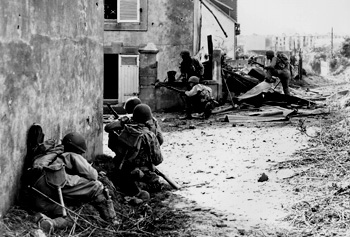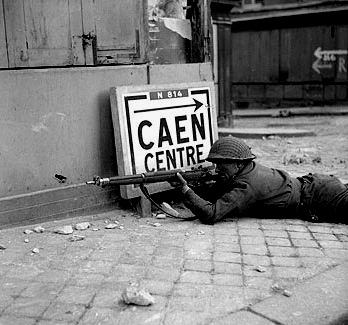John Steinbeck (1902–1968)
During the years between the last war and this one, I was always puzzled by the reticencereserved, reluctance to speak of ex-soldiers about their experiences in battle. If they had been reticent men it would have been different, but some of them were talkers and some were even boasters. They would discuss their experiences right up to the time of battle and then suddenly they wouldn't talk anymore. This was considered heroic in them. It was thought that they had seen or done was so horrible that they didn't want to bring is back to haunt them or their listeners. But many of these men had no such consideration in any other field.
Only recently have I found what seems to be a reasonable explanation, and the answer is simple. They did not and do not remember--and the worse the battle was, the less they remember.Why do you think this is the case?
In all kinds of combat the whole body is battered by emotion. The ductless glandsglands that discharge fluid directly into the bloodstream, such as the thyroid pour their fluids into the system to make it able to stand up to the great demand on it. Fear and ferocity are products of the same fluid. Fatigue toxins poison the system. Hunger followed by wolfed food distorts the metabolic pattern already distorted by the adrenaline and fatigue. The body and the mind so disturbed are really ill and fevered. But in addition to these ills, which come from the inside of a man and are given him so that he can temporarily withstand pressures beyond his ordinary ability, there is the further stress of explosion.
Under extended bombardment or bombing the nerve ends are literally beaten. The eardrums are tortured by blast and the eyes ache from the constant hammering.

"In all kinds of combat the whole body is battered by emotion. The ductless glands pour their fluids into the system to make it able to stand up to the great demand on it."
This is how you feel after a few days of constant firing.What effect does the second-person point of view have on Steinbeck's narrative? Your skin feels thick and insensitive. There is a salty taste in your mouth. A hard, painful knot is in your stomach where the food is undigested. Your eyes do not pick up much detail and the sharp outlines of objects are slightly blurred. Everything looks a little unreal. When you walk, your feet hardly seem to touch the ground and there is a floaty feeling all over your body. Even the time sense seems to be changed. Men who are really moving at a normal pace seem to take forever to pass a given point. And when you move it seems to you that you are very much slowed down, although actually you are probably moving more quickly than you normally do.
Under the blast your eyeballs are so beaten that the earth and the air seem to shudder. At first your ears hurt, but then they become dull and all your other senses become dull, too. There are exceptions, of course. Some men cannot protect themselves this way and they break, and they are probably the ones we call shell-shock casessoldiers with psychological disturbances because of traumatic exposure to war.
